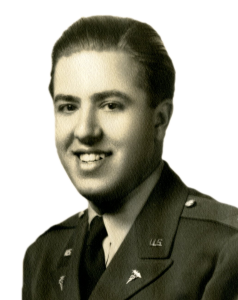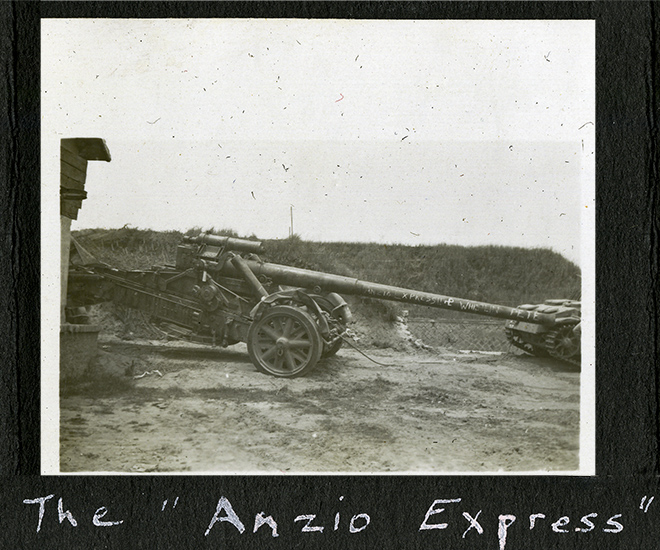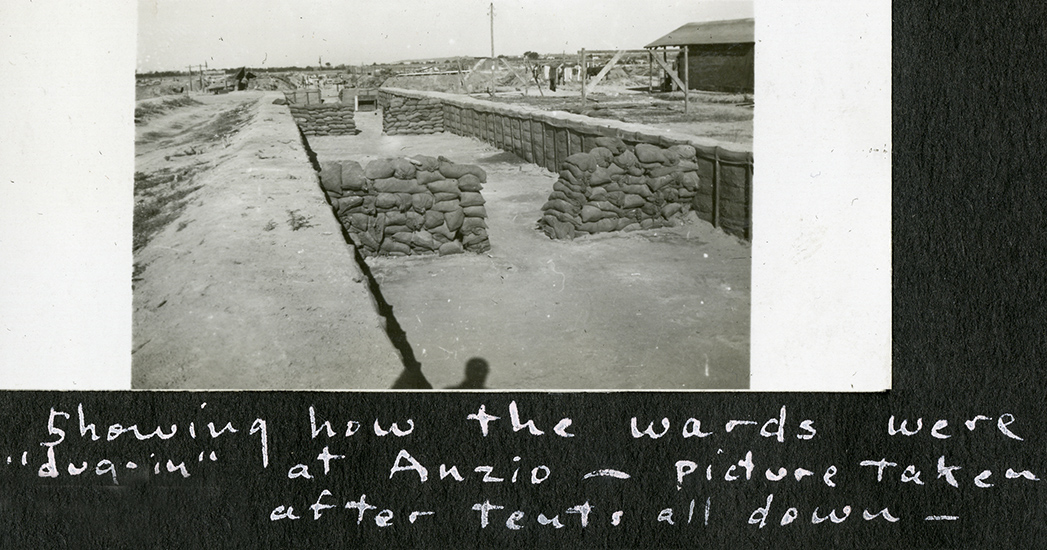June 6, 1944
On June 6, we headed for Anzio by truck convoy. Traveling along Route #7, the famous Appian Way, we passed through Formia, Fondi, Terracina, Littoria and finally came into the now famous beach head at Nettuna. All of these cities were in complete ruins. It almost made us sick to the stomach to see the terribly wasteful destruction that is part of war. Without seeing it first hand one can never fully appreciate the full significance of the destructive aspect of war.
There was very little destroyed war equipment along the route, undoubtedly due to the rapid, but orderly, retreat by the Germans. Here and there a destroyed tank, truck or gun could be seen.
Everywhere the engineers were busily repairing railroads and bridges and the signal corps was attempting to restore the power lines.
Finally we reached the beach head and I must say I have never seen a more impressive sight. Only now can I fully appreciate what these men have been through. Here is a narrow stretch of flat land surrounded by hills from which the German artillery could see every move of the troops on the beach. This was the target of the famous “Anzio Express,” a 175 mm, self-propelled cannon that was responsible for so much of the pounding of the beach head. We saw this gun in the ordinance yard when we came in – it had been captured intact on May 29.
The most remarkable sight was to see the way that everyone and everything was “dug in.” Even the hospitals were all partially below ground with gunnysack barricades over the roofs of the surgical tents. The hospital personnel all slept in dug-outs within their pyramidal tents, also covered by sacks of sand.
Even trucks and ambulances were driven in to dug-outs at night or when not in use. We were told of numerous instances in which shells had landed within the hospital area and personnel, including officers and nurses and patients, were killed. The 95th Evac. was pulled off the beach head because of a direct hit. It was after this that the hospitals were dug-in and with this protection no further deaths occurred, except by an occasional direct hit.
All hospitals, ambulance and clearing companies were centered in one area about a mile square. These included the 3rd Division Medical and many Evac Hospitals, including the 15th, with Bert Halter, whom we saw during our first week at Nettuno. Another was the 38th Evac, which we replaced.
Bert looks fine and give us a most interesting account of what they had been through. They had done a tremendous amount of work and taken a terrific pounding. The general feeling of the medical officers was one of not wanting any further front-line work, and here we were dying to get into it. The situation was no help to our already lowered morale to think that we came in after it was all over and were once again to be left sitting behind.
We had a short and uneventful air-raid on the night of our arrival.
.




